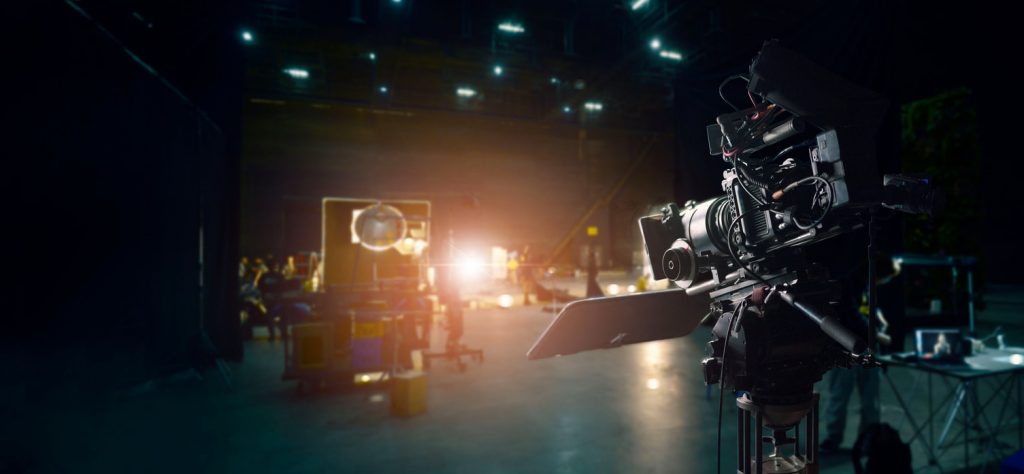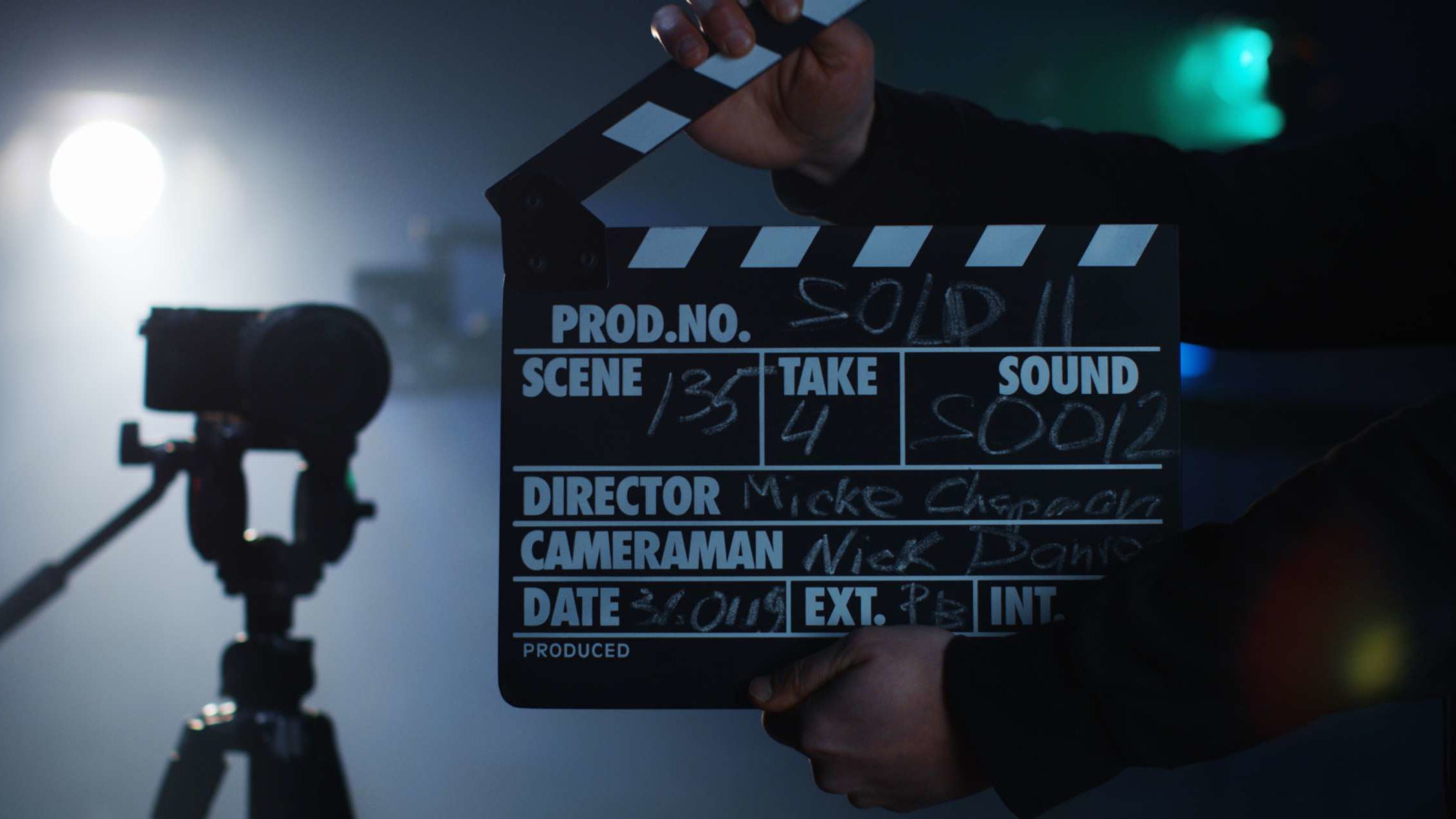What Does It Take To Become A Famous Actor
Acting is one of the oldest professions known to mankind, and it has been an integral part of entertainment since the dawn of time. From ancient Greek theater to modern-day blockbusters, acting has continued to captivate audiences with its ability to bring characters to life. So what is acting exactly? Acting involves embodying a character and conveying their emotions, thoughts, and actions. It is a form of storytelling that requires the actor to have a deep understanding of human behavior, emotions, and relationships. In this article, we will explore what it takes to become a successful actor and the various forms of training that can help aspiring actors hone their craft.
The Definition of a Famous Actor
A famous actor is someone who has achieved a level of widespread recognition and acclaim for their performances on stage or screen. They are respected for their talent, charisma, and ability to bring complex characters to life. Examples of famous actors include Meryl Streep, Tom Hanks, and Denzel Washington, who have become household names due to the success of their careers.
Becoming a famous actor takes more than just talent. It requires an enormous amount of discipline, dedication, resilience, and training. Actors must be willing to work incredibly hard, train for long periods, and have a certain level of physical attractiveness. Luck also plays a critical role in becoming famous, as there is often an element of chance involved in landing a breakthrough role or finding an agent.
Famous actors are known for their ability to captivate audiences with their performances, and they often have a particular style or approach to acting that sets them apart. They also tend to have a distinctive look or presence that helps them stand out from the crowd. Just like any other profession, becoming a famous actor takes a lot of work, but the rewards can be enormous. By studying the case studies of famous actors and learning about their training, craft, and dedication, aspiring actors can gain insight into what it takes to succeed in the field.
Formal Training and Education
Becoming a famous actor is not an easy feat as it requires a combination of talent, perseverance, and dedication to the craft. One way to increase your chances of success is by having a strong foundation in formal training and education. The entertainment industry is highly competitive, so having the necessary skills and knowledge can give aspiring actors an edge over their peers. In this article, we will explore the importance of formal training and education in an actor’s journey and how it can help open doors to new opportunities in the acting industry.

Degree in Acting
Earning a degree in Acting is a crucial first step toward becoming a successful and famous actor. A college education in theater studies provides students with comprehensive training in all aspects of acting, from script analysis and character development to stagecraft and technical production. Most acting degree programs last for four years, and applicants often need to audition before being admitted.
The curriculum of an acting degree program usually includes courses in voice and movement, acting for stage and screen, theater history and literature, and production techniques. Students will also participate in a variety of practical projects, productions, and performances, which will help them develop practical skills and make important industry connections.
The estimated cost of an acting degree program varies widely depending on the institution and location. However, prospective students should expect to pay anywhere from tens of thousands of dollars for a degree program at a state university to hundreds of thousands of dollars for a degree at a top private institution.
Overall, earning a degree in acting is an excellent investment for anyone serious about pursuing a career in the entertainment industry. Through formal training and practical experience, students are equipped with the skills and knowledge needed to make it in the highly competitive world of acting.
Acting Classes and Workshops
There are various options available for aspiring actors looking for relevant training to enhance their acting skills. Acting schools offer different types of classes and workshops that cater to different levels of experience and interests.
Some classes can run for a few weeks while others can last for a few months to a year, with a focus on building specific acting techniques. The time commitment can range from a few hours a week to full-day sessions, depending on the course structure.
Costs can also vary greatly, with prices ranging from a few hundred to thousands of dollars. Some schools may offer scholarships or fellowships to help alleviate the financial burden for deserving students. The subject matter can also differ from school to school, with offerings that range from specific acting techniques like Stanislavski or Method acting, to voice and movement, improvisation, and even business aspects of the entertainment industry.
When choosing an instructor or method, research and read reviews to help narrow your options. Choose based on the type of acting that you want to pursue, the level of commitment required, and the budget that you have at your disposal.
Whichever type of acting training you choose, consistent practice and hard work will be essential in developing your craft and mastering the art of creating believable characters that can bring your performances to life.
Drama School and Theater Productions
Attending a drama school provides aspiring actors with the formal training they need to pursue careers in theater productions. Drama schools help actors to hone their acting techniques, build their portfolios, and learn essential skills such as stagecraft, improvisation, and voice projection. They also offer opportunities to participate in theater productions, which allow students to apply their skills in a real-world setting and develop their abilities as performers.
Participating in theater productions while in drama school is an essential part of building a successful career as an actor. It provides students with valuable experience and exposure to different types of productions. Theater productions also provide an opportunity to build a portfolio of work, which can be useful when seeking future roles. Being part of productions while in school also helps actors gain confidence and a sense of professionalism on stage, crucial for pursuing a successful career in the industry.
Networking and building relationships with fellow actors and directors while in drama school is also crucial. These relationships can lead to future opportunities and play a significant role in building a successful acting career. Drama school provides a platform to foster these relationships, and students should take advantage of every chance to build connections with their peers and industry professionals. In summary, drama school provides the foundation for aspiring actors to pursue careers in theater productions, and participating in productions while in school and networking with fellow actors and directors are critical for building a successful career in the industry.
Professional Headshots and Resumes
Professional headshots and resumes are crucial tools for actors who want to make a good first impression. Headshots are often the first thing a casting director or agent sees when considering an actor for a role. It is important that the headshot accurately portrays the actor’s physical appearance. A headshot should show the actor’s unique personality and style. It is recommended that the headshot is taken by a professional photographer who understands the importance of lighting and composition.
In addition to a headshot, a resume is another crucial component for actors. This document highlights an actor’s education, experience, and skills. A well-crafted resume can make all the difference in the actor’s career progression. Casting directors and agents look for resumes that are clear and concise while showcasing the actor’s range and versatility. It is important to update the resume regularly to reflect any new skills or experience gained.
Professional headshots and resumes are essential for actors looking to make a name for themselves in the industry. They represent the actor’s calling card and must make a strong and lasting impression. A headshot that accurately showcases the actor’s unique style, combined with a well-crafted resume highlighting the actor’s range and versatility, can be the key to landing that coveted role.
Developing Acting Skills
Acting skills are necessary if one wants to become a successful and famous actor. Developing these skills requires a lot of hard work, dedication, and practice. It’s not just about memorizing lines and delivering them well; it’s about bringing the character to life and making the audience believe in the story. With proper training and practice, aspiring actors can hone their craft and become more confident in their abilities. In this article, we will discuss the various ways to develop acting skills and become a better actor. From formal education to practical experience, there are many paths to take when it comes to developing acting skills.

Character to Life on Stage or Screen
Bringing a character to life on stage or screen requires an actor to develop their role through a process of rigorous character development. This process requires a deep understanding of the script, collaboration with the director and fellow cast members, and a willingness to push the boundaries of the character.
Actors use a variety of techniques to create a believable and engaging character. These techniques range from using emotional memory, physicalization, and vocal variety to embody the traits and qualities of their character. Emotional memory involves recalling personal experiences and using them to evoke the appropriate emotional response in a scene. Physicalization involves utilizing body language and movement to convey a character’s physicality and personality while vocal variety allows actors to manipulate their tone and pitch to convey their character’s intention.
Throughout this process of character work, actors must constantly test the boundaries and possibilities of their characters. This approach to character development is about creating a three-dimensional character that is both complex and relatable. Through the use of script analysis, collaboration, emotional memory, physicalization, and vocal variety, actors can bring their characters to life and ultimately deliver a compelling performance on stage or screen.
Types of Actors – Theatre, Film, TV, etc.
There are different types of actors based on the medium of performance, such as stage actors, screen actors, and voice actors. Stage actors perform in live theatrical productions, while screen actors act in film and television productions. Voice actors, on the other hand, cater to audio-only productions such as ads, animation, podcasts, video games, and audiobooks.
Each medium of performance requires different acting techniques, and actors need to identify which medium excites them the most. For stage actors, physicality, projection, and vocal range are important aspects of technique. Screen actors focus on smaller gestures and facial expressions, while voice actors rely solely on vocal techniques to convey their character’s emotions and intentions.
Exploring web series, social media videos, and OTT platforms are great opportunities for actors to showcase their talent and gain exposure in today’s digital world. With the rise of streaming platforms, actors have a plethora of opportunities to showcase their craft to a wider audience and potentially catapult their careers.
Understanding the different types of actors and their respective mediums is important for actors to develop their skills and pursue career opportunities in their desired fields.
Working with Fellow Actors and Directors
Collaboration is key to building a successful acting career. Working with fellow actors and directors is an essential part of honing one’s craft and expanding opportunities. The entertainment industry is all about networking and forming connections, and working alongside others is a great way to do so.
Actors can learn so much from their colleagues. Learning new techniques, tips, and insights about the craft from those who have moved ahead in the industry plays a significant role in improving one’s performance. By sharing knowledge and experience, actors can create a community of support and growth that benefits all involved.
Directors also play a critical role in an actor’s journey. Learning from their direction, critiques, and advice is essential to creating better performances. Directors can also connect actors to new opportunities and help them reach broader audiences.
Ultimately, collaboration enhances an actor’s skill set and provides them with more opportunities. Working with fellow actors and directors helps in building trust, and mutual respect, and learning how to work within a team. In a solo craft such as acting, it may be easy to focus on oneself, but it is the collective efforts of actors, directors, and the entire creative team that brings a character to life on screen or stage.
Understanding the Entertainment Industry
Understanding the entertainment industry is crucial for aspiring actors. This complex field includes everything from film and television production to theater and musical productions. It is not just about talent; hard work, dedication, and networking play an essential role in success. Creating relationships and building connections in the industry can open doors to opportunities and career growth.
Networking is particularly impactful as it helps actors find mentors, agents, casting directors, and other industry professionals. Some organizations and companies can help aspiring actors make connections in the industry. For instance, the Screen Actors Guild, a union for actors, provides networking opportunities and resources such as seminars, benefits, protections, and legal services. Additionally, production companies, casting agencies, and management companies are all valuable resources for aspiring actors.
Building a network can also lead to opportunities for roles in films, theatre, commercials, TV shows, and more. Connections can also prove critical in forwarding scripts or collaborations on new projects. Thus, understanding the entertainment industry and building relationships in it can be the key to success for aspiring actors.
Learning from Industry Professionals and Coaches
Aspiring actors can learn from industry professionals and coaches through various means. One popular way is to seek mentorship from an experienced actor or director who can provide guidance, feedback, and advice on navigating the industry. Additionally, attending acting classes and workshops can help improve technical skills and provide opportunities to learn from instructors with years of experience in the field.
Mentorship provides aspiring actors with a wealth of knowledge and insights that can help them grow in their craft. Experienced actors and directors can offer advice on everything from audition techniques to the best way to establish a professional network. Acting classes and workshops also offer a structured environment for actors to hone their skills and receive constructive feedback from instructors and fellow actors.
Networking is another important aspect of learning from industry professionals. Attending industry events and conferences can provide opportunities for actors to meet established actors, directors, and casting agents. Building relationships with these individuals can help an aspiring actor gain visibility in the industry, as well as provide valuable insights and advice on career development.
Aspiring actors can benefit greatly from learning from industry professionals and coaches. Through mentorship, acting classes, workshops, and networking, they can gain the knowledge, skills, and connections necessary to succeed in the competitive world of acting.
Building an Acting Career
Building an acting career takes hard work, dedication, and perseverance. It’s not an overnight success story but a journey that requires constant learning, networking, and self-promotion. There are several paths one can take to enter the entertainment industry, and whether you choose to pursue formal education, seek mentorship, or partake in acting classes and workshops, it’s essential to develop acting skills and character development. In this article, we’ll explore the steps required to build a successful acting career, from finding auditions and creating a compelling resume to building a professional network and pursuing the opportunities available to non-union actors. Let’s dive in and explore the world of building an acting career.
What happened to Jeremy Piven
What happened to Jeremy Piven? Jeremy Piven’s career trajectory began with supporting roles in popular ’80s films, such as “Lucas” and “One Crazy Summer.” After some success in television, he landed a breakthrough role in HBO’s hit series “Entourage” as the unforgettable Ari Gold, which earned him three Primetime Emmy Awards for Outstanding Supporting Actor in a Comedy Series.
Piven’s notable performances also include his portrayal of Hollywood agent Dean Kansky in “Serendipity” and slick car salesman Don Ready in “The Goods: Live Hard, Sell Hard.”
Recently, Piven played the character of Dr. Armond in the dark comedy series “The White Lotus” and a recurring role in the medical drama “Chicago Med.” He has also appeared in several independent films, including “Last Call” and “Crabs in a Bucket.”
With 30+ years of experience in the entertainment industry, Jeremy Piven has proven to be a versatile actor with many talents. His success can be attributed to his exceptional acting skills and his ability to bring unique and memorable characters to life.
Conclusion
In conclusion, becoming a successful actor requires a deep understanding of the risks and rewards associated with it. It’s important to comprehend that rejection is a big part of the industry, but the eventual rewards can make it all worth it. However, one cannot be solely motivated by the potential rewards. Loving the craft and being passionate about acting are crucial as it sustains you in the face of adversity.
